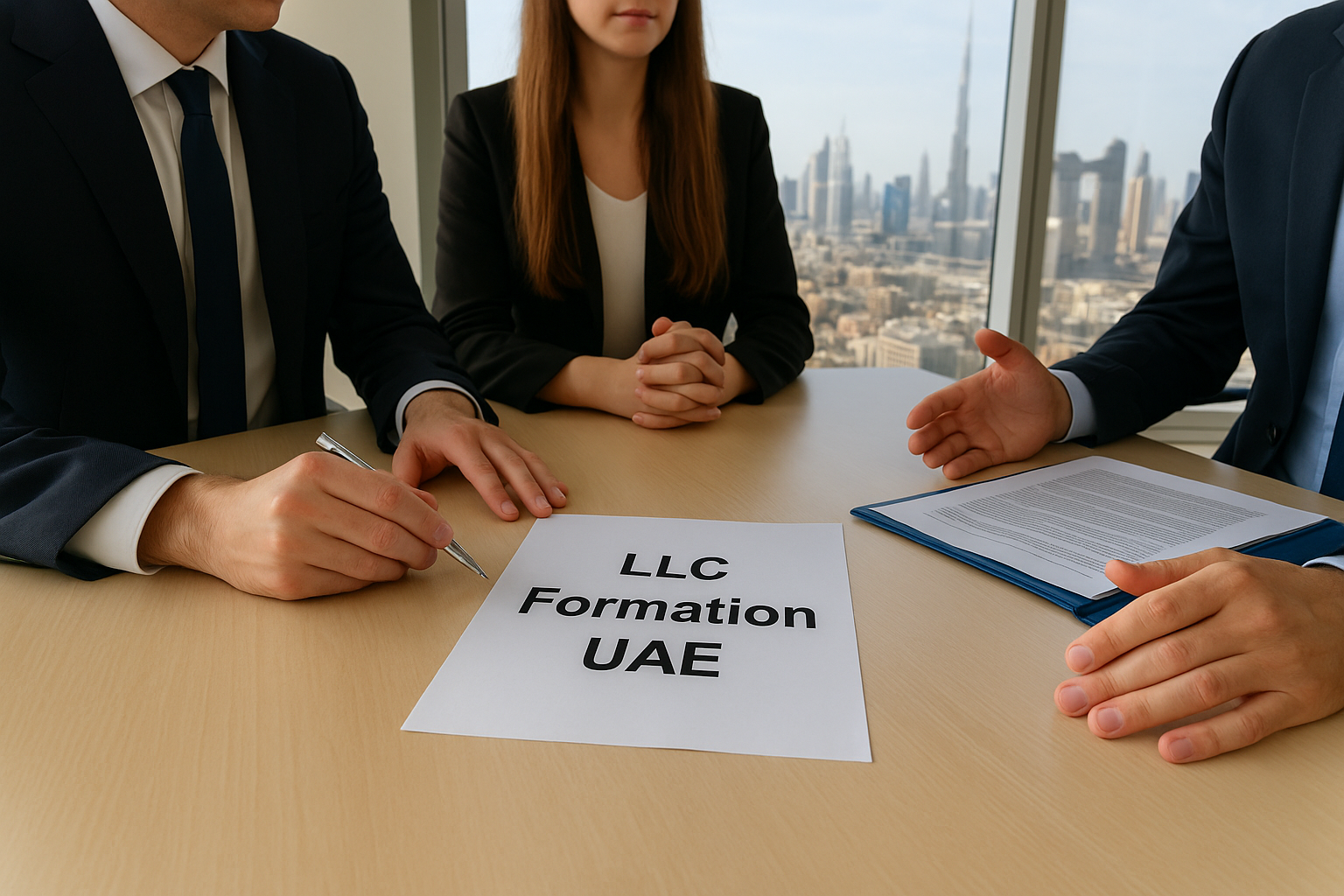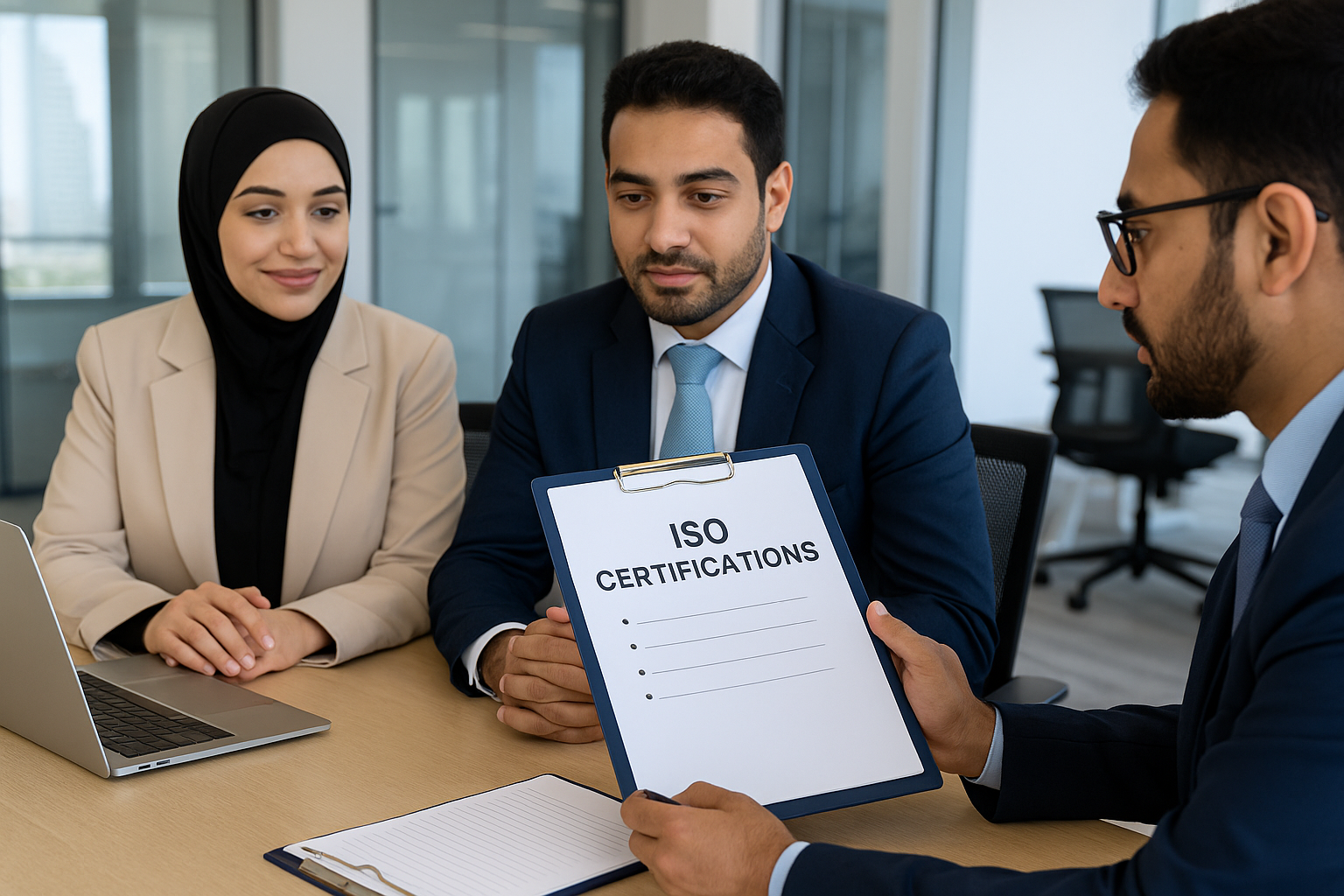Introduction
The United Arab Emirates has established itself as one of the most advanced business destinations in the world. Its strong economy, supportive government policies, and world class infrastructure attract thousands of investors and entrepreneurs every year.
Among the different types of business structures available, the Limited Liability Company, commonly called an LLC, is the most popular form of business setup in the UAE. It is flexible, practical, and suitable for both local and foreign investors who wish to operate within the UAE mainland.
An LLC gives business owners legal protection, credibility, and access to the local market. It is especially favored because shareholders’ liabilities are limited to the amount they invest in the company.
This article explains in detail what a Limited Liability Company is, how it works, what is required to form one, and why it remains one of the most effective legal structures for doing business in the UAE.
What is a Limited Liability Company (LLC)
A Limited Liability Company is a type of business entity where the liability of each shareholder is limited to the value of their share in the company’s capital. This means that if the company experiences financial losses, the shareholders’ personal assets are protected and cannot be used to pay company debts.
The LLC is governed by the UAE Commercial Companies Law (Federal Decree-Law No. 32 of 2021). It outlines how companies should be formed, managed, and dissolved, as well as the rights and responsibilities of shareholders.
An LLC can operate in almost any sector including trading, manufacturing, services, and contracting. However, certain industries such as banking, insurance, and investment require special licenses or government approvals.
Main Characteristics of an LLC in the UAE
A Limited Liability Company has several key characteristics that make it attractive for entrepreneurs.
1. Number of Shareholders
An LLC can have between one and fifty shareholders. Each shareholder’s liability is restricted to their contribution to the share capital.
2. Legal Personality
Once registered, the company becomes a separate legal entity that can enter contracts, own property, and take part in legal proceedings under its own name.
3. Limited Liability
Personal assets of shareholders remain safe. They are responsible only up to the amount of their investment.
4. Ownership Options
Foreign investors can own 100 percent of the company in most sectors. Some restricted or strategic activities may still require local ownership.
5. Capital Requirements
There is no fixed minimum capital requirement for forming an LLC unless specified for certain regulated sectors. The capital should be adequate for the nature of the business.
6. Taxation
The UAE applies a corporate tax rate of 9 percent on profits above AED 375,000. There is no personal income tax for individuals.
7. Flexibility of Management
One or more managers can be appointed to run the company. They may or may not be shareholders.
Advantages of a Limited Liability Company in the UAE
LLCs are often chosen because they provide a combination of flexibility, protection, and recognition.
1. Legal Protection
Shareholders enjoy limited liability, which means that in case of debt or loss, their personal property cannot be seized to cover company obligations.
2. Full Market Access
An LLC can operate freely across the UAE mainland and trade directly with customers, unlike Free Zone companies that are limited to certain geographical areas.
3. Credibility and Recognition
Banks, clients, and suppliers view LLCs as stable and legitimate business structures. This enhances their reputation and improves access to financial and trade opportunities.
4. Variety of Business Activities
LLCs can conduct almost any type of business, including trading, construction, real estate, hospitality, consulting, or manufacturing.
5. Flexible Ownership and Management
The company can be owned and managed by individuals or corporate shareholders. Managers can be local or foreign professionals depending on the company’s needs.
6. Opportunity to Expand
LLCs can open branches or subsidiaries in different emirates or even outside the UAE using the same ownership structure.
Limitations and Responsibilities
While the LLC structure offers many advantages, it also carries certain obligations.
• Compliance with Laws: Companies must comply with UAE federal and emirate-level business regulations, including labor, tax, and accounting rules.
• Annual License Renewal: Every LLC must renew its trade license each year through the Department of Economic Development (DED) or relevant authority.
• Accounting and Auditing: Proper accounting records must be maintained, and in some cases, companies are required to submit audited financial statements.
• Restricted Activities: Certain sectors such as defense, oil and gas, and banking still require local participation or government oversight.
Ownership Structure of an LLC
The ownership and structure of an LLC can vary depending on the number and type of shareholders.
• Single-Member LLC: Owned by one person or a corporate entity. Treated as an independent company under UAE law.
• Multiple Shareholder LLC: Can have up to fifty partners. Each shareholder’s liability is limited to their investment.
• Foreign Ownership: Since 2021, most economic sectors allow 100 percent foreign ownership. However, a few sensitive industries may still require an Emirati partner or service agent.
How to Form a Limited Liability Company in the UAE
Setting up an LLC in the UAE involves a series of clear and structured steps. Although the procedures may differ slightly among emirates, the core process remains similar.
Step 1: Choose Your Business Activity
Decide what type of business you want to conduct. The UAE allows thousands of commercial, industrial, and professional activities. Each activity defines the type of license you need.
Step 2: Reserve a Company Name
Select a company name that follows UAE naming rules. It must not contain religious references, political terms, or offensive words. Once approved, the DED issues a name reservation certificate.
Step 3: Obtain Initial Approval
Apply to the Department of Economic Development for initial approval. This step confirms that the UAE government has no objection to your business.
Step 4: Draft the Memorandum of Association
Prepare the Memorandum of Association, commonly known as the MOA. It includes details about the company’s objectives, ownership structure, capital, and responsibilities of each shareholder. The MOA must be notarized by a public notary in the UAE.
Step 5: Secure an Office or Workspace
A physical address is required to complete registration. The company must provide a valid tenancy contract or Ejari certificate for office premises.
Step 6: Submit Final Documents
After the initial steps, submit all required documents to the DED or related authority. This includes the MOA, trade name certificate, shareholder IDs, and payment receipts for government fees.
Step 7: Receive the Trade License
Once all approvals are granted, you will receive the official trade license, allowing your LLC to begin operations in the UAE.
Step 8: Register for Tax (If Applicable)
If your business exceeds the VAT threshold of AED 375,000 in annual turnover, you must register for VAT. Additionally, companies subject to corporate tax must register with the Federal Tax Authority.
Step 9: Open a Corporate Bank Account
With the license issued, the company can open a corporate bank account. Banks may request company documents, proof of address, and shareholder information.
Documents Required for LLC Registration
Below is a general list of documents needed to register an LLC in the UAE.
- Passport copies of all shareholders and managers
- Emirates ID and visa page for residents
- Trade name reservation certificate
- Initial approval certificate
- Notarized Memorandum of Association
- Office tenancy contract or Ejari
- NOC from current sponsor, if applicable
- Payment receipts for government fees
Some activities may require additional approvals from authorities such as the Ministry of Health, the Central Bank, or Dubai Municipality.
Cost of Forming an LLC in the UAE
The total cost of forming an LLC depends on the emirate, business activity, and office size. The following table provides approximate ranges:
|
Emirate |
Estimated Cost (AED) |
Includes |
|---|---|---|
|
Dubai |
12,000 to 25,000 |
Trade license, registration, documentation |
|
Abu Dhabi |
10,000 to 22,000 |
License and government fees |
|
Sharjah |
9,000 to 20,000 |
MOA notarization and approvals |
|
Ajman |
8,000 to 18,000 |
Administrative and registration fees |
These figures may vary depending on additional approvals, office space, and activity type.
Renewal and Compliance
Every LLC must renew its trade license annually. The renewal process typically includes:
- Renewing the tenancy or Ejari contract
- Paying renewal fees to the DED
- Submitting required documents
- Updating company records if any changes occurred
Failure to renew the license can result in fines or suspension of operations. Companies must also maintain accounting records for at least five years and comply with tax and labor laws.
Comparison with Other Business Structures
|
Feature |
Limited Liability Company |
Free Zone Company |
Sole Proprietorship |
|---|---|---|---|
|
Ownership |
One to fifty shareholders |
Usually 100% foreign |
Single owner |
|
Liability |
Limited to capital |
Limited |
Unlimited |
|
Market Access |
Full mainland access |
Restricted to free zone |
Limited |
|
Visa Eligibility |
Multiple visas |
Multiple |
Limited |
|
Setup Cost |
Moderate |
Varies |
Low |
|
Credibility |
High |
High within zone |
Moderate |
Corporate Governance Requirements
LLCs are required to maintain clear internal governance to ensure legal compliance and operational transparency.
- The company must have at least one manager appointed through the MOA.
- Annual shareholder meetings should be held to approve financial statements and major decisions.
- Financial statements must be prepared in accordance with international accounting standards.
- Businesses subject to corporate tax must submit annual tax returns to the Federal Tax Authority.
Common Challenges During LLC Formation
Even though the process is straightforward, new investors sometimes face certain challenges, such as:
- Selecting the right business activity from official lists
- Understanding differences between mainland and free zone regulations
- Preparing accurate MOA details
- Managing bank account and visa requirements
- Interpreting tax laws and accounting obligations
These challenges can usually be overcome with proper research or assistance from a qualified business advisor or legal consultant.
Conclusion
The Limited Liability Company remains the most popular and practical business structure in the UAE. It offers legal protection, flexibility, and access to a diverse and growing market. Understanding its structure, registration process, and compliance requirements helps entrepreneurs make informed decisions about their business setup.
The UAE continues to simplify business laws, encourage investment, and support full foreign ownership in most sectors. This has strengthened the role of LLCs as the foundation of the country’s economic growth.
Whether you are researching UAE corporate law or planning to launch your business in the future, learning about the structure and operation of LLCs provides essential insight into how successful companies operate in one of the most business-friendly environments in the world.











